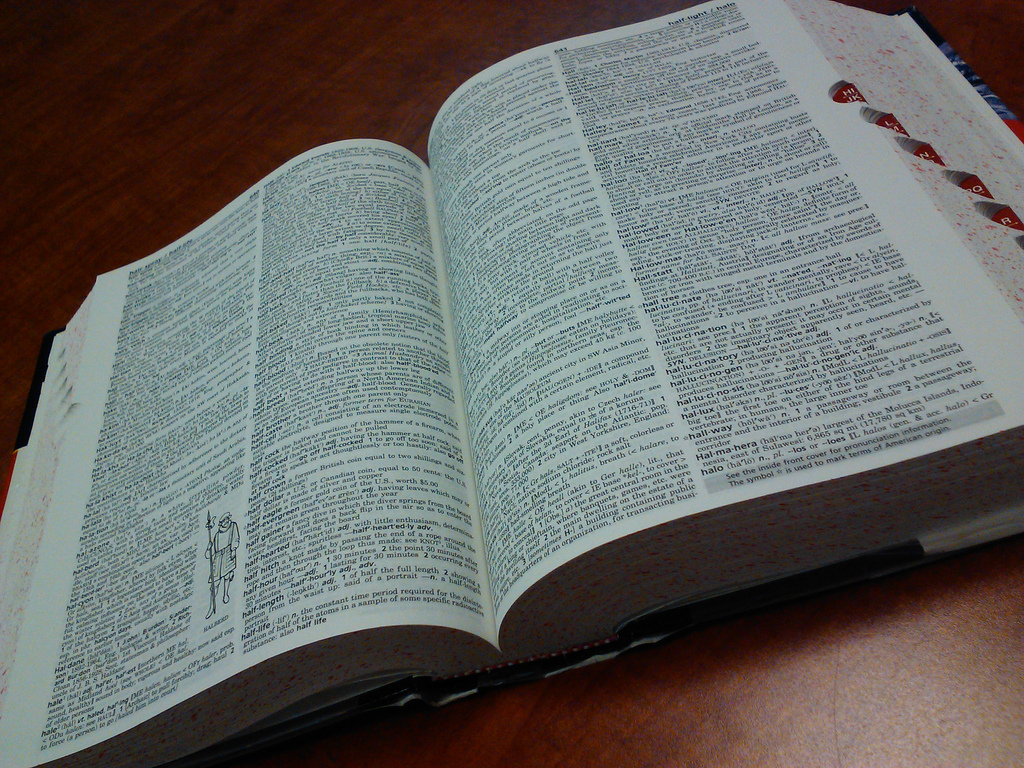Sign up for the daily CJR newsletter.
Words of the year pronouncements seem to gain traction every year, even as the number of “contests” themselves seem to be increasing. Like the Time magazine “person of the year,” they are more exercises in highlighting current societal trends than they are momentous awards.
Some “words of the year” are determined by popularity, meaning they spiked in online lookups. By definition, then, they are related to happenings in the world.
ICYMI: Notable changes in AP style
That’s the case with Merriam-Webster’s word of the year, “feminism.” As explained on the Words at Play blog, lookups of “feminism” spiked several times in 2017—after the women’s marches in January; with the arrival of movies featuring strong female characters, like Wonder Woman and The Handmaid’s Tale; and with the tsunami of sexual harassment accusations against powerful men.
Like many of the organizations offering words of the year, M-W lists more than one. Following close on the heels of “feminism” were “complicit,” “recuse,” “empathy,” “dotard,” “syzygy,” “gyro” (thank you, Jimmy Fallon), “federalism,” “hurricane,” and “gaffe.” If you need to know what these words mean, please look them up. Especially “syzygy,” one of our favorites. Better still, listen to M-W’s editor at large, Peter Sokolowski, explain how they decide.
Dictionary.com also shows how popular culture is tied in. Lookups for its word of the year, “complicit,” spiked when Saturday Night Live ran a parody advertising a new Ivanka Trump perfume called “Complicit” in March. “Complicit” lookups spiked again almost a month later, when, in a television interview, Ivanka Trump said, “If being complicit is wanting to be a force for good and to make a positive impact, then I’m complicit.” As dictionary.com said, “being complicit is decidedly negative, as it means that a person is involved with someone or something that’s wrong. Whatever your politics, this meaning is not up for debate.” (What is up for debate is dictionary.com’s claim that “When the meaning of words is called into question, people turn to Dictionary.com as a source of truth.” As we’ve noted, when people need definitions, they turn to dictionaries, regardless of their URLs.)
Both of those word of the year decisions are based on visits to individual websites. For a broader view, a “corpus,” a massive database of how words are used in context, can be analyzed. There are many kinds of “corpora,” and Brigham Young University offers access to many of them. One, called News on the Web, or NOW, is used to determine its word of the year. For 2017, it was “fake news.” (Yes, that’s two words, but the database includes multiword expressions.) As its site explains, “we looked at the actual frequency of words in 2017 and we compared this to the frequency in 2016.” The NOW corpus “contains nearly 1.7 billion words in 3.5 million articles in newspapers and magazines from 2017 (as well as 3.8 billion words for previous years).”
ICYMI: A bombshell scoop that started with an 11-word, late-night text
The American Dialect Society is far less scientific, having its members nominate and vote for the word of the year. Nonetheless, it came up with the same word of the year, “fake news.” It was a contender last year, it says, “but at the time its meaning was restricted to fictional or embellished stories presented as authentic news, disseminated for financial gain or for propagandistic purposes.” This year, it said, President Trump “often used it as a rhetorical bludgeon to disparage any news report that he happened to disagree with,” giving “fake news” not just new meaning but much broader exposure. (ADS has different categories of words of the year, including digital WOTY, slang WOTY, emoji of the year…) Collins Dictionary also chose “fake news.”
Now, to a couple of outliers. Oxford Dictionaries named as its word of the year “youthquake.” It’s not surprising if you haven’t heard of it, since Oxford is a British institution, and admits that it “has yet to land firmly on American soil.” It’s defined as “a significant cultural, political, or social change arising from the actions or influence of young people.” Its usage, Oxford says, has traveled throughout the Empire, to New Zealand and Australia, but its origin is actually American, coined by the Vogue editor Diana Vreeland in the 1960s, when youth around the world were rebelling and gaining their political balances.
And the Oxford University Press named as its children’s word of the year “trump.” Note the lowercase. It was “picked because of its significant increase in use (a total rise of 839 per cent on 2016) by entrants writing in this year’s competition and the sophisticated way in which children used it to convey humour and satire, and evoke powerful descriptive imagery.”
Out of the mouths of babes…
ICYMI: What we learned from CNN’s bizarre interview
Has America ever needed a media defender more than now? Help us by joining CJR today.







